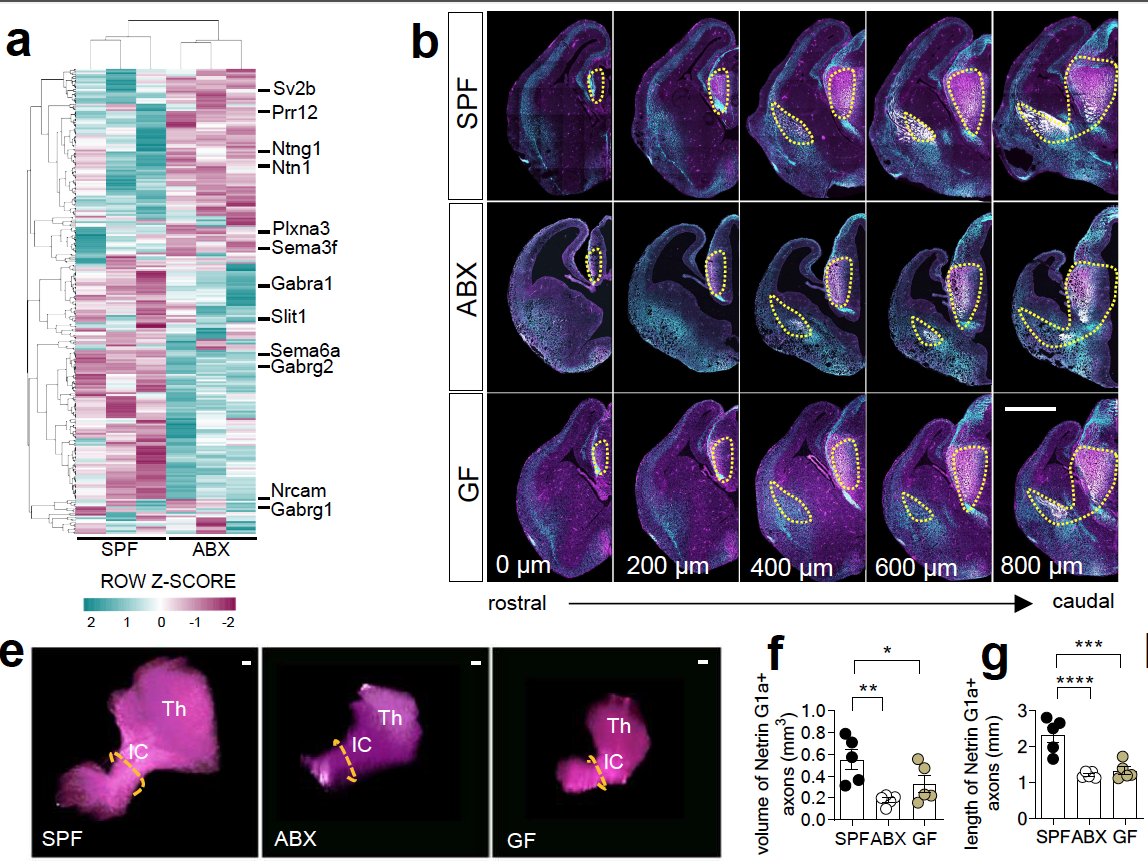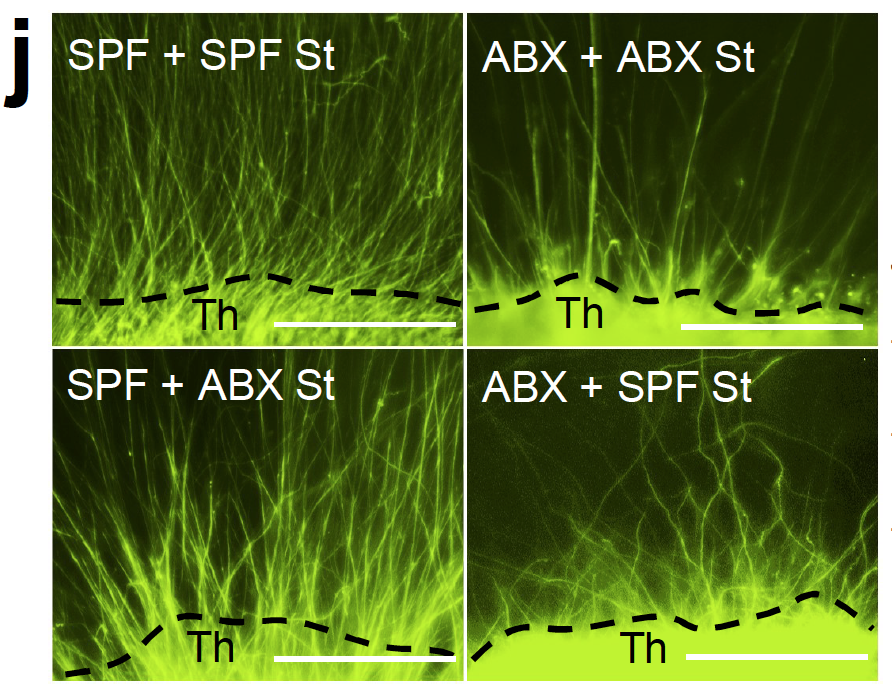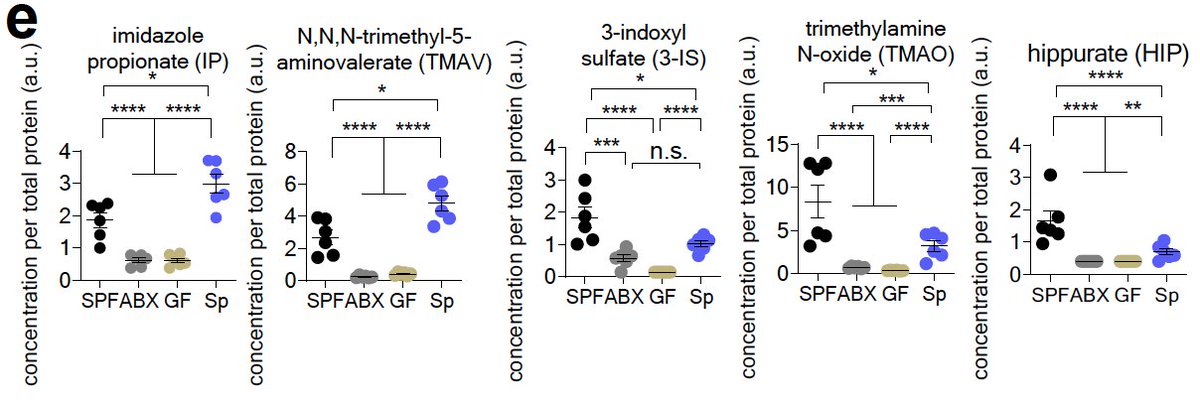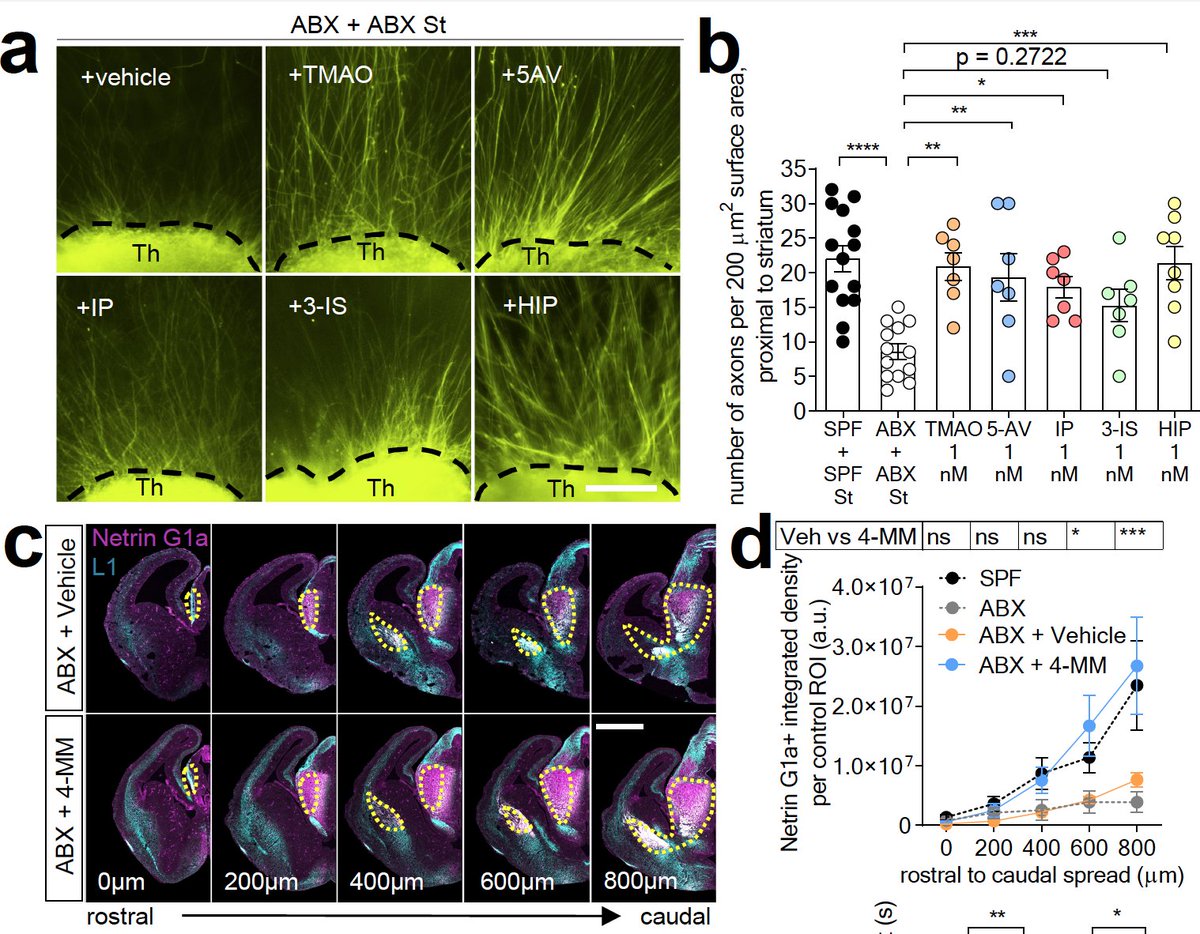Taking the opportunity to reflect on the personal backstory & progression of @helenvuongphd + lab’s discovery of a role for the maternal microbiota in regulating axon development in the fetal brain. https://www.nature.com/articles/s41586-020-2745-3">https://www.nature.com/articles/...
http://rdcu.be/b7B5O ">https://rdcu.be/b7B5O&quo...
My first https://abs.twimg.com/emoji/v2/... draggable="false" alt="🧵" title="Thread" aria-label="Emoji: Thread">:
https://abs.twimg.com/emoji/v2/... draggable="false" alt="🧵" title="Thread" aria-label="Emoji: Thread">:
http://rdcu.be/b7B5O ">https://rdcu.be/b7B5O&quo...
My first
When I joined the Patterson lab @Caltech as a grad student, Liming Wang & Natalia Malkova had just established a mouse model to study epidemiological links between maternal infection and increased risk for schizophrenia & autism (very fringe at the time!) https://www.jneurosci.org/content/23/1/297.long">https://www.jneurosci.org/content/2...
Steve Smith found that IL-6 mediated the adverse effects of maternal inflammation on fetal brain development & offspring behavior, but we didn& #39;t know how. My job was to find out where and how it was working- in mom, placenta and/or fetal brain. https://www.jneurosci.org/content/27/40/10695.long">https://www.jneurosci.org/content/2...
I owe much of my career to the freedom PHP gave me as a student. He was pro-fetal brain, but never interfered when I thought IL-6 in placenta was more important. I got into placental immunology/endocrinology & promised to do the fetal brain stuff later. https://www.ncbi.nlm.nih.gov/pmc/articles/PMC3081363/">https://www.ncbi.nlm.nih.gov/pmc/artic...
Around then, the Human Microbiome Project was happening and having studied microbiology as an undergrad, I was totally captivated. At the same time, my interactions with ASD parents were filled with questions & anecdotes about gut problems + restricted diets.
PHP was still supportive when I turned my attention to gut problems, peripheral immune dysregulation and gut bacteria, made possible thanks to Sarkis Mazmanian in the building across the way! https://www.pnas.org/content/109/31/12776.long">https://www.pnas.org/content/1... https://www.cell.com/cell/fulltext/S0092-8674(13)01473-6">https://www.cell.com/cell/full...
That was the start of the microbiome rabbit hole for me. I fell into other projects that I thought were important & easier to get at "mechanism". And I was happy to see other scientists doing amazing work on maternal immune activation @meyer_uzh, K. McAllister, M. Bauman + many!
Still I maintained interest for maternal-fetal interactions, early development, ASD. And I always felt a bit disappointed to not have fulfilled my earlier promise to work on the fetal brain before my academic hero PHP suddenly passed in 2014. https://www.cell.com/neuron/fulltext/S0896-6273(14)00725-9">https://www.cell.com/neuron/fu...
The amazing @helenvuongphd was the first post-doc to join my empty lab at UCLA and I was thrilled to be able to pass the baton to her.
By then there were so many awesome studies ( @jfcryan @jfosterlab @HeijtzRochellys @TheBaleLab @neuroeldin + many!) on how infection, stress, and other risk factors could shift the microbiome, and how the microbiome could control how severe the immune and stress response was.
We wondered if the microbiome was important because it tuned the severity of stressors and/or whether the microbiome on its own was functionally important for neurodevelopment.
@helenvuongphd shows that the microbiome alters metabolites in the fetal brain that guide axogenesis
@helenvuongphd shows that the microbiome alters metabolites in the fetal brain that guide axogenesis
When pregnant mice were raised as germ-free or treated with antibiotics, fetal brains had altered gene expression and reduced thalamocortical axons
The axon problems could still be seen if @helenvuongphd grew fetal thalamic explants from microbiota-deficient moms. By studying thalamic co-cultures with hypothalamic/striatal explants, she found that the thalamus seemed to not be responding properly to guidance/growth cues
@helenvuongphd identified metabolites that were dependent on the maternal microbiome and similarly low/absent in maternal blood, fetal blood and fetal brains when pregnant moms had deficient microbiomes.
Some of the metabolites directly stimulated axon outgrowth from explants. Also, when @helenvuongphd administered the metabolites systemically to pregnant mice, they increased in fetal brains and prevented the axon defects seen in fetal brains from microbiota- deficient moms.
Thanks to @helenvuongphd + lab for all their hard work & to Paul H. Patterson for the enduring inspo  https://abs.twimg.com/emoji/v2/... draggable="false" alt="✨" title="Funken" aria-label="Emoji: Funken">
https://abs.twimg.com/emoji/v2/... draggable="false" alt="✨" title="Funken" aria-label="Emoji: Funken">
& Tianyi Mao + 4 anonymous reviewers for helpful comments (and reasonable asks!)
& @DrewKiraly @OfMiceAndMinds for the awesome N&V: https://www.nature.com/articles/d41586-020-02657-y">https://www.nature.com/articles/...
& Tianyi Mao + 4 anonymous reviewers for helpful comments (and reasonable asks!)
& @DrewKiraly @OfMiceAndMinds for the awesome N&V: https://www.nature.com/articles/d41586-020-02657-y">https://www.nature.com/articles/...
& all those past and present who post #scitwitter threads about their papers, bc who knew they take so much work!
This may be my first and last https://abs.twimg.com/emoji/v2/... draggable="false" alt="😂" title="Gesicht mit Freudentränen" aria-label="Emoji: Gesicht mit Freudentränen">
https://abs.twimg.com/emoji/v2/... draggable="false" alt="😂" title="Gesicht mit Freudentränen" aria-label="Emoji: Gesicht mit Freudentränen"> https://abs.twimg.com/emoji/v2/... draggable="false" alt="😅" title="Lächelndes Gesicht mit offenem Mund und Angstschweiß" aria-label="Emoji: Lächelndes Gesicht mit offenem Mund und Angstschweiß">.
https://abs.twimg.com/emoji/v2/... draggable="false" alt="😅" title="Lächelndes Gesicht mit offenem Mund und Angstschweiß" aria-label="Emoji: Lächelndes Gesicht mit offenem Mund und Angstschweiß">.
This may be my first and last

 Read on Twitter
Read on Twitter





